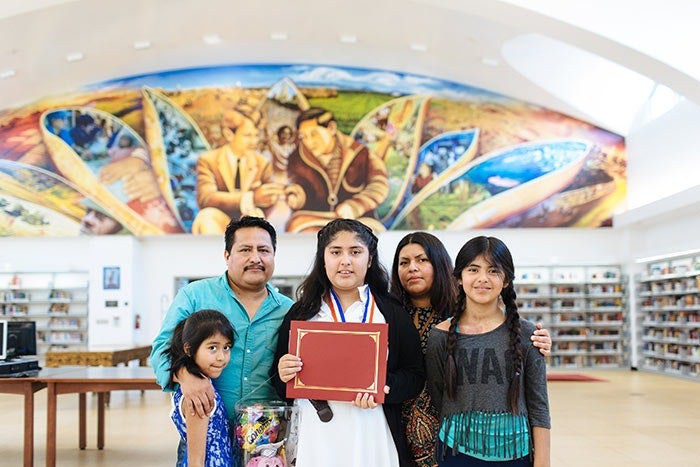“Migration,” says Marcelo Suárez-Orozco, “is as old as Homo sapiens, it is an ancient and shared condition of our humanity.” Suarez-Orozco, the Wasserman Dean of the UCLA Graduate School of Education and Information Studies and a noted scholar on migration, likes to say, “We are all immigrants, it is the issue of our times.”
He may be onto something. In the United States, about a quarter of all students have a foreign-born parent. Here in California, the number jumps up to about half. In the Los Angeles Unified School District, 67 percent of students have a foreign-born parent. And many students are themselves new arrivals to our nation.
In recent months, the issue of immigration has become highly charged. The rhetoric of the Trump administration has castigated immigrants as criminals and worse. In addition, policies have sought to ramp up deportation efforts and block those who would seek asylum.
The UCLA Graduate School of Education and Information Studies sees immigrants differently. It sees them as the future.
“These children and their families have so much to offer our schools and our communities,” said Jody Priselac, Associate Dean for Community Programs. “Their experiences and culture add greatly to our neighborhoods and nation. We are learning so much from them and together, we are finding ways to succeed.”
The graduate school is engaged in multiple efforts to ensure the educational success of students from immigrant families. Perhaps the most prevalent of these efforts is the UCLA Community School in Koreatown. Built on the Robert F. Kennedy campus at the former site of the Ambassador Hotel, the school was intentionally designed and developed to meet the needs of neighborhood children and families, almost all of who are immigrants.
“We wanted to break the mold,” Priselac says. “We wanted to be different. We wanted to be a school where [where students who are] the least served and too often thought of as the least likely to succeed, found a way to do so. We knew there was going to be a large immigrant population and so we intentionally set out to learn about and find ways to meet their needs.”
To read the full story in Knowledge That Matters – Sudikoff Institute Public Forum, visit this link.
